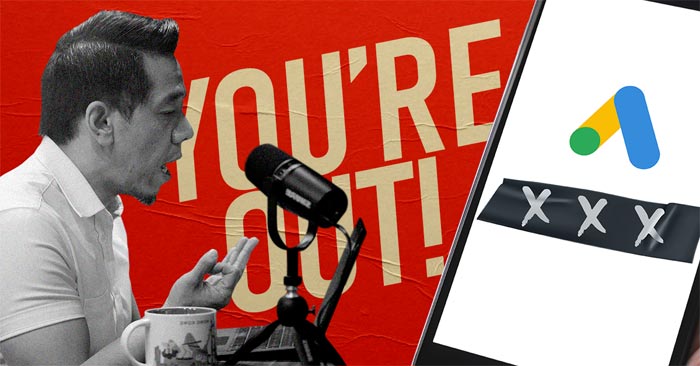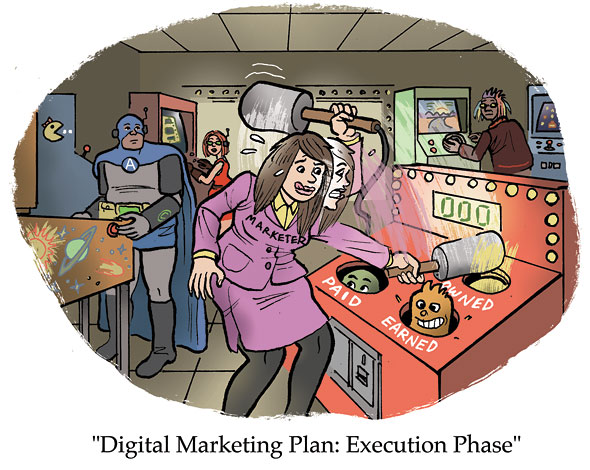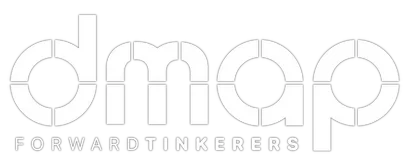Truelogic Episode 36 Recap Part 2: Pros and Cons of Agency vs In-House Marketing

Whether you opt for a dedicated in-house digital team or you outsource to an agency depends on your business requirements; each will come with opportunities and challenges.
Shell’s Head of Global Content Strategy, Jason Cruz, will cover its pros and cons and share his experiences for you to mull over as you consider both options for your digital marketing strategy.
Podcast Transcription
Berns San Juan: Hi, guys. Welcome back to the Truelogic DX Podcast. You are joining us for the second installment of our episode on brand versus agency marketing. And it’s a conversation that we’re lucky enough to have with Mr. Jason Cruz. Now, for some of you, you might be at the phase where you’re looking to scale up your marketing requirements, or you might be trying to build your digital teams and you’re trying to find out what kind of talent you need to take charge and execute your strategy.
But for most people, for most teams, for most brands, what are the factors that need to be considered in building your in-house teams and when selecting agency partners? Aside from that, there are a lot of other side topics that we talk about in this very open conversation. So listen in and let’s find out what Jason has in store for us. Let’s welcome back Jason and let’s get started with the conversation.
Responsibility Difference between In-house vs Agency Marketing
Berns San Juan: For you guys, how much of all of the digital work for Shell is done in-house? And then what do you farm out the agencies like what kind of work do you guys send out?
Jason Cruz: Not something I can share though in this podcast. But there are ratios and splits.
Berns San Juan: But is there always a share that’s always sent out? And then what kind of work would that be like if you send it out? Is it business-as-usual stuff and then strategic stuff is always kept in-house?
Jason Cruz: Well, if we are gonna use examples of brands in general and what gets out to the agency scope in general, what I’ve observed from being an agency is that the stuff that is tactical than to be farmed out to the agencies. ‘Cause when I was an agency, this is what I was doing. I was doing actual social media content and social media strategies what are the actual articles on the website or what are the photos in the e-commerce store? Very tactic space.
And I see the point now that I’m in the brand and that those are very time-intensive work that doesn’t necessarily or shouldn’t necessarily be taken on by a brand person because the brand person needs to take care of big picture stuff. So both are important, right? Both are important. The big picture stuff is about what?
Berns San Juan: It’s the little stuff that makes the big-picture stuff move.
Jason Cruz: Exactly. It’s the little stuff that’s hard to do consistently and it takes away the time to think about the long-term plan. I think that’s where the brand versus agency relationship should really be a bit more firm. The brand should be better at giving directions. The brand should know what the business is going for in the long term while the agency should know what are the short-term or tactical solutions to contribute to this long-term strategy that the brand is thinking.
Neither one is more important than the other. It’s more of how these two things work together. Because at the end of the day, the customer has to be super happy. The brand has to protect shareholder value. The agency’s gotta make its money. How do make they all work together?
Berns San Juan: So do you ever get to interact with the agencies that work with Shell?
Jason Cruz: I work with a few agencies and I always interact with them. I think it’s very important that I show my presence and my visibility. I think it’s also respectful to be there in their meetings and listen to what they have to say.
Berns San Juan: But that’s a double edge sword in your case, right? Wouldn’t they feel like that’s a double-edged sword in your case? You’ve been in their shoes. Are you discovering that agencies are loving? So you were a former agency guy. So I would probably assume A) Your briefs are probably more spectacular than everybody else’s. B) More capable of giving them better clarity. But they also know your stuff, right? And so, are you experiencing that they’re loving it more, or are they more apprehensive when it comes to working with you?
Jason Cruz: Well, my benefit is that I work with global agencies, I’m kind of happy actually. They don’t know my reputation within the Philippines and Asia ‘cuz those is my work areas in the last 11 years. So I’m kind of happy about that ‘cuz it allows me that new slate of being a beginner almost with how they think.
I try to get out of their way in a sense that I don’t micromanage. I actively try not to micromanage ‘cuz I know when I was a planner and I was in a social creative role, y hated it. When my client would tell my like, “What color to put on this thing?” It’s just annoying. I try not to micromanage. But whenever I’m in a meeting or join them, they show out their content.
My general rule… and this is just for me, this doesn’t reflect how the rest of the company briefs their agencies or manages their agencies. My general rule is to say yes first and then let’s figure out what are the limitations.
So for example, if they propose a piece of content and it’s very risky, my instinct is, “Okay. Let’s see how we can make this work. Maybe some parts here are not safe because safety is super important in our particular line of work, then let’s change that part.” But I’m not gonna go out there and be a jerk to my agencies because “I know better.”
I know, for sure. And I mean, this is just between us and the podcast audience. I know for sure that I’ve done a lot more campaigns than a couple of my agency partners. It shows sometimes, but I’m not gonna take that against them because my experience doesn’t negate what they bring to the table. My capabilities as an individual contributor in the past don’t negate their contribution to my campaigns.
For me, everybody has a dish to bring to the potluck and I suppose that’s the kind of client I wanna be. And it’s been an environment where I’m allowed to be that, not the guy who just tells them do A and do B and write this in this way and that’s the law. No, no, no. I wanna see what you think. I wanna see what you bring to the table because I can’t know it all. It’s not possible.
Berns San Juan: And so what are the most important capabilities that brands should be kept in-house? Because agencies do develop a lot of capabilities. Sometimes data science is a service all in itself. Content creation is a service all in itself. The site is a capability in itself. But what are the key digital capabilities brands should be keeping in-house?
Jason Cruz: I think data should be kept in-house. I think you should use data agencies when you want to augment, but you should not rely on data agencies to give you 100% of your data. I think, first, that’s inaccurate. And second, it’s irresponsible. I think in this day and age, brands are always generating data and also always gathering data. Maybe they don’t know it, but they are.
I’ll give you an example. I was giving a talk, pre-pandemic to DTI, and we were talking about small businesses and the small businesses were always telling me, “Oh, we don’t have any data.” I said, “No. Yes, you do. You have a POS, right? You have the data and you have a region.” So let’s say you’re selling your bottled tuyo in a small barangay in Batangas, which is usually the kind of business that I talk to in my DTI sessions. I said you know exactly who is buying your product. You know the general amount of money that they spend on your products. That’s your basket size. So your general vicinity, that’s your target or your addressable target market. These are all data points,
And I think even if you scale it up to a multinational, there’s even more of those data points, right? How many people are going to your supermarket? How many people are signing up for your newsletter? There’s a lot of data that companies are either consciously or unconsciously generating and collecting. And my personal opinion is that you know that this data exists. You should be more proactive in keeping this data, protecting it, and using it to improve the lives of your customers.
Now, if you rely on agencies to do this, the agency data is usually aggregated. And I know this ’cause I worked in a data agency, right? We can make very intelligent guesses and they could potentially be accurate, but no data is more accurate than your data. The first-party data that you collect, right? So from that standpoint alone, I think that’s the one thing that brands should keep in-house as much as possible.
I think skill-based work should always be farmed out because I would say agencies just learn better ‘cuz they don’t just compete with other agencies, they also compete internally. The best creatives wanna work on the best brands and the best accounts people wanna work on the most money-making accounts. So there’s that little sense of competition. And competition breeds excellence. That’s how I always see it.
So creating content for brands, I think that should the agency work just because of volume and also because of expertise. Sometimes, especially from the global perspective. Not all the pieces of content that are gonna work in all markets. So y am not that familiar with the European content scene, right? So if it’s Asia, I can pretty much lock it down in a brief. But for a European target market, I would allow my agency to take the lead there. I’ll give some guidance on brand stuff, but the actual execution, I think that’s something that they’re far better at.
Another one would be things that move very quickly in terms of changes. So anything that involves third-party platforms where changes can happen overnight. You’re looking at Meta, you’re looking at websites, e-commerce, who knows, right? What are the changes that can happen overnight? I want that to be with my agencies ‘cuz they’re probably gonna be more aware of what’s happening out there in the world while I am a little bit more, I would say, narrow vision into the business rather than what’s out there.
Things to look for in an agency
Berns San Juan: When you guys were looking for talent, so let’s talk ADA back in the day when you guys were building digital teams at agencies, what would you say are the top 1, 2, 3 things you guys look for with candidates? And then I’m gonna jump into… do you look for the same things now that you are in an agency. But let’s start with the top things that you look for when you were with an agency. And then before we move to brand.
Strategic thinking
Jason Cruz: I’ve built a few social media and digital teams in my career. And what I’ve always looked for as a very first skill is the ability to think strategically like the big picture. The way I see it, tactical stuff is easier to teach. The strategic stuff is harder to teach. So I go with what you already have as a skill set. And I try to think of it like in sports teams, if you’re building a football team, you’re not gonna look for somebody wholly tall, right? And because you’re betting on the fact that he can probably have a goal, you’re gonna look for somebody who can pass ‘cuz that’s the fundamental skill in the game.
And on the opposite side, in basketball, I had a very interesting conversation when I was in college. Coach Franz Pumaren and I were joking with him if I had the chance in the men’s basketball and if you’ve met me, dude, I’m 5”4’ man. I am proudly a low center of gravity. That’s how I like to say it.
And he told me that as much as he likes my spirit and my interests, basketball can be taught, but height cannot. That kind of stuck with me, but never in an offensive way. It stuck with me because that’s how I would build my teams. What are the things that are already pre-rebuilt and what are the things that I can teach? I could probably teach a person what to think about when they’re thinking of creating content for maybe Facebook versus Instagram versus a website. But I cannot or I would have a very difficult time teaching skills like how do you connect all of these to lead to a business. Or how do you create an ecosystem ’cause those are things that sometimes happen naturally for people.
So those things, while they seem or they sound a bit ephemeral. You can see them in interviews and you can design questions that illustrate these in interviews. So for example, there was a batch of kids in Mahan. Before that, I had the absolute pleasure of interviewing. My line of questioning for them was, “Okay, here’s a particular business, and here’s a target audience, how do we structure three social media platforms of your choice to reach them, both at work and at home?” And if they try to tackle that from a day-in-life perspective or in the channel ecosystem behavior of a person, then I know we’re in a very good place because they’re thinking big picture.
But if they answer me very tactically like, “Oh, I’m gonna use a hashtag,” Right. So I’m like, “Okay, that’s probably not what I’m looking for,” ’cause tactical stuff is often easier to teach and the churn is also faster on those skill sets. So that’s the first one, strategic thinking.
Communicative
Jason Cruz: The second one is communication. I think I’ve met a lot of people who are brilliant but they’re poor communicators. And that could be detrimental, not just for a campaign, but also for client relationships, and internal relationships.
An example here that comes top of my mind always and I use this as an example when I give talks on communication is that I was working with this brilliant engineer. He’s a data scientist. Brilliant, brilliant person, very abrasive, just could not communicate, point to the colleagues. And I think you’ve heard that in a lot of industries. He’s brilliant or she’s smart but very difficult to work with. If somebody’s difficult to work with because they cannot communicate their points across, then there’s no great work that’s gonna happen, right?
Communication is how you win people over. And if you can communicate a point clearly without bulldozing other people, then I think that’s like three steps ahead of the competition, right?
Berns San Juan: Because you’re always selling an idea, right? You’re always selling an idea and calm is your ability to sell that idea.
Salesmanship
Jason Cruz: I think communication blends very nicely into my third favorite skill set I look for in people and that’s salesmanship. And you are always selling. And that’s something that people don’t grasp intuitively. And when I would share my business development experience. It’s always you’re always selling something. If you’re not selling the product, you’re selling yourself. Clients will not want to work with you if they don’t like you or buy into who you are, right?
So if I am putting myself out there as this guy who teaches digital marketing, who works on all of these campaigns, then I have to convince you that it’s true. And the proof of the pudding there is that I have to be a teacher. I have to show you, I have to be able to show your cards on campaigns that I’ve worked on.
And the salesmanship part is not about bragging or boasting, it’s about picking what’s strong about your set of skills. You know, like an RPG game, right? We have to pick our strengths and weaknesses when we create a character, right? For me, it’s about how you tell people that these are your strengths.
So an example here is the creative industry. Most people would just use their awards to show that they’re good at creatives. But I think that’s not enough. There are a lot of people who win awards. So the salesmanship part of the creatives that I’ve met that I admire is the way they describe, for example, the dynamics of the team. What’s the philosophy of their agency? How do they tackle problems? How do they even recuperate? Because that sells me the idea that, “Okay, this agency’s probably a group I wanna work with,” or they some idea that, “Okay, given my challenges, they’re probably in the best position to address them.”
Berns San Juan: In terms of brand, now, when you look for people that work with the brand or work within the brand, do you look for the same traits?
Jason Cruz: I do. But from a different angle perspective. Strategic thinking is even now more important because we work on very long-term visions. If there’s no ability to connect a solution to a business problem, then it’s not gonna work out, man.
And I experienced this during an interview. There was a guy that I was interviewing for a particular role for the brand, and he just could not grasp the fact that we need to connect a certain solution or program to this objective. And he kept asking, “Oh, why is that important? Why is that important?” It is important. And if you cannot see the connection between that, then it’s the wrong interview man.
Communication, it’s even more important because it’s a multinational company. I deal a lot with my colleagues in China. I have to say I have a big advantage there because when I was in the agency, I was working with a team based in China. And communicating with mainland Chinese stakeholder groups versus communicating with people based in the UK or North America is drastically different. So communication skills now need to be a bit more adaptable because if you cannot communicate with teams, points get lost, literally sometimes in translation.
And internally, I would say I have to sell even more than now when I was an agency. Because it’s such a big company and you’ve got so many layers of approvals to get things done. And if you’re not selling your ideas properly, you’re never gonna get approval or anything. And none of your projects are gonna take off and you have to sell their brief to the agency. Agencies would say yes, right? But whether or not they follow your direction is another… but I want them to work with me, with my vision and my direction. So I have to sell them the idea that this is a good idea, right?
Even with external stakeholders, like partners, I have to sell them the idea that working with us is a great thing. I have to sell to prospects that working here is a great thing. So salesmanship never leaves you. I would argue that salesmanship as a skill would never leave you as long as you’re breathing. In salesmanship, it’s not about selling sometimes, it’s about just asking. People forget that. Just ask. Asking is free.
Building a Career in Digital: Brand or agency first?
Berns San Juan: So my last question is gonna be saved up for the young people that are listening, the guys that are building their careers in digital. And I guess from a guy that’s walked it 11, 12 years that has worked in agency, has worked in brand, how should they manage their career? Should they try to begin with the brand first? Should they begin from the agency first? Should they aspire to move the brand eventually? How should they be planning out their careers?
Jason Cruz: That’s a tough one. I don’t wanna pick an industry in terms of career planning, but from what I’ve advised university students in career talks is that you need to have a very clear distinction between what you like doing versus what makes you money. I’m quite a hard line in that philosophy. So there’s this saying, right? ‘If you follow your passions, if you work on a job you love, then you’ll never work a day in your life.’
I’ll give you a very real-world example. One of our good friends is you know, she fell in love with this musician. Great guy. I have to say I super love hanging out with the guy and he’s a struggling musician. And the thing is, in the Philippines, you can’t just be a good musician, you have to be freakishly good. Exceptionally good. Because this is a country that produces amazing talents.
So the thing is, he wants to follow his dream. He’s very happy with what he does. And the thing is, it’s not the kind of work or level that is gonna financially support having a family one day. So it didn’t turn out super well. Yes, he was following his passion and you could argue that he’s never worked a day in his life. But I think if you’re having problems meeting rent, paying for food, supporting a family, then it’s not great if you’re living, but are you living, right? It’s very different. So I was telling university students not too long ago that if you can have that distinction, a lot of people in my generation, millennials and the Gen Zs say, “Oh, office work? Oh, that’s boring. It’s so crushing. No, we gotta be entrepreneurs!”
So I would tell students that it’s not a bad thing to have a very stable job table, that makes you decent money. Use that money to go and pursue the things you love.
Because from a personal perspective, I love teaching. And if I could have it my way, I would teach full-time. But as my mother, who’s a career educator and academic, has advised me many times during my teenage years, teaching is a vocation. There’s no millionaire teacher, like what to a teacher who made millions. It’s not possible. So, I mean, I love it, but it’s not gonna support the lifestyle that I want for my family. We’re building a new house so that’s not gonna finance it.
So what I’ve done, in terms of career development is I’ve always had that very clear line in the sand. I’m gonna look for a job that could be very hard and mentally, but if it gives me the funds and the time and the health, or to the things that I love, then you know, you get the best of both worlds.
A lot of kids demonize the corporate world. They’re all about pursuing a passion. And again, there’s nothing wrong with that, but I am here to give them a reality check that maybe pursuing your passion is going to decrease the quality of life that you want for yourself.
I like to think that everybody wants to be happy, but it’s a lot easier to be happy when you can take a three-week vacation that you’ve fully paid for. So think about your quality of life first, your family first, your comforts, and the things that you want for your life first before going with passion. Passion doesn’t pay bills sometimes.
Berns San Juan: Yeah. I agree. And you know, I think for people at Truelogic, one of the earliest things they hear from me. Because we do company talks. They’re like that box better than company-wide. And we do them once a month. And one of the things that I like to try to tell people, especially every time they’re new, is one of the most important life skills is you have to learn to walk your passion like a dog. When you walk your dog, you walk your dog, you don’t let your dog walk you. And I think that has to be the same as your passion, right? You don’t follow around. You walk it.
Jason Cruz: I like that. I like that analogy. I’m gonna steal that.
Berns San Juan: Go for it. And I think that’s the last note and that’s the last question I had. Jason, thank you very much for accepting the invite, and for taking the time to have this conversation with us on the Truelogic DX. The podcast is a new format for me. Honestly, when they were telling me the idea last year we were like, “Podcast? I’m not a podcasting kind of guy. But I mean, sure! You guys are the experts in your field. So, sure. I’ll try anything once.”
Jason Cruz: So whoever proposed that to you, practiced their salesmanship skill well. So, good job, whoever that was.
Berns San Juan: I’ve been loving it ever since. Less maintenance than doing monthly webinars. Not that we wouldn’t, but it’s been great. I think the reception that we’ve had has been great.
I wanna say thank you to the guys that listen to us month on month on month. But I mostly wanna say thank you for joining us. Again, I hope this is not the last. I think we’ve only scratched the surface of everything that people should be listening to either in terms of career development, skill development, or the world of digital. I love digital ‘cuz it’s so interesting, right? It’s like something you always wanna break and it’s always something new.
Jason Cruz: Thank you so much for having me.
Berns San Juan: If you enjoyed today’s episode, follow Truelogic on Facebook, LinkedIn, and YouTube. Check out our website at www.truelogic.com.ph for more information on digital marketing. Don’t forget to subscribe to our Spotify, Google, and Apple accounts and set up your alert for new episodes. We are powered by Podmachine. I will see you in the next episode. Cheers.










